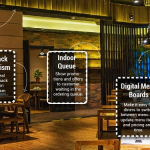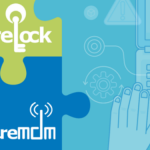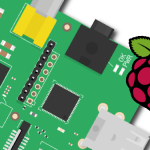Business
BYOD, CYOD and COPE- Breaking Down Digital Workplace Programs
What is the right fit for your organization? Mobile productivity and user centric IT approach are cornerstones in today’s IT industry. Many companies are captivating the workforce by marketing these mobility strategies. In fact, the rise of BYOD strategy (Bring Your Own Device) was the result of such initiatives. Soon appeared CYOD (Choose Your Own…
Read MoreAre you using the right contact management tool?
Effective communication is the most important key to create an engaging workplace. It helps businesses foster a culture of transparency and teamwork. But often employees struggle to search through several lists just to find an important business contact, wasting valuable time. This has become even more pronounced as workforces have become dispersed and has hindered…
Read MoreDemystifying Android Enterprise Zero-touch Enrollment
Mass device enrollment and provisioning mobile devices has always been a cumbersome and time-consuming task for IT admins. The entire process that is usually followed involves unpacking the mobile device, booting up, and installing all required business application and configuration. This process took lot of time to get the device ready for operational use. Google…
Read MoreBetter Customer Experience at Restaurants using Smart Devices based Digital Signage
With sales of $799 billion (Source:National Restaurant Association Report 2017), US restaurant industry is one of the largest potential markets for the new age technologies. Nowadays, many restaurants are adopting digital signage solutions in an effort to boost sales and enhance customer service. Any off-the shelf smart devices based on Android or Windows OS can…
Read MoreStrengthen your ELD Compliance with 42Gears Mobility Management
About ELD In December 2015, the Federal Motor Carrier Safety Administration (FMCSA) published the new Electronic Logging Device (ELD) mandate. It was first outlined along with the “Moving Ahead for Progress in the 21st Century” bill in 2012, enacted by the United States Congress. The ELD Mandate required the FMCSA to formulate a rule that dictates…
Read MoreHow to enable SureMDM Nix Agent from SureLock
With the growing use of mobile devices to connect with enterprise network and access business data, mere locking down of these devices is not enough. A centralized console is necessary to manage, control and secure all such endpoints. With the integration of lockdown solution like SureLock and advanced enterprise management solution like SureMDM, IT admins…
Read MoreManaging Enterprise Apps through Unified App Catalog
Enterprise reliance on applications is increasing everyday as almost every aspect of business is being supported and driven by applications. Streamlining business processes using CRM apps, establishing closed and efficient communication systems between employees and customers using email and chat apps, enhancing mobility and productivity using office apps, are few examples of using applications for…
Read MoreBlueBorne Attack: SureLock To The Rescue
A new attack vector is threatening all major mobile, desktops and IoT systems – BlueBorne. It is an airborne threat that attacks devices via Bluetooth. BlueBorne allows attackers to take control of devices, access sensitive corporate data and networks, infiltrate “air-gapped” networks and spread malware. Hackers can use the BlueBorne method to penetrate and take…
Read MoreEvolution of Raspberry Pi as a Business Computer
When Raspberry Pi first made an appearance in 2012, it created quite a stir in the computer world. The Linux OS based computer, with a low-price tag, offered support for various Linux distributions, making it a great option for business use. By 2014, almost 4 million units of Raspberry Pi systems had made their way…
Read MoreChromebooks to Run Android Apps – Competition for Android Business Tablets?
Google’s announcement that Chromebook has started running Android apps from 2017 raised the question of how it will fare compared to Android tablets, especially in a corporate ecosystem. While tablets are the ideal mobility tool for businesses, Chromebooks based on Chrome OS were introduced as cheaper replacements for laptops. This is where the later…
Read More









